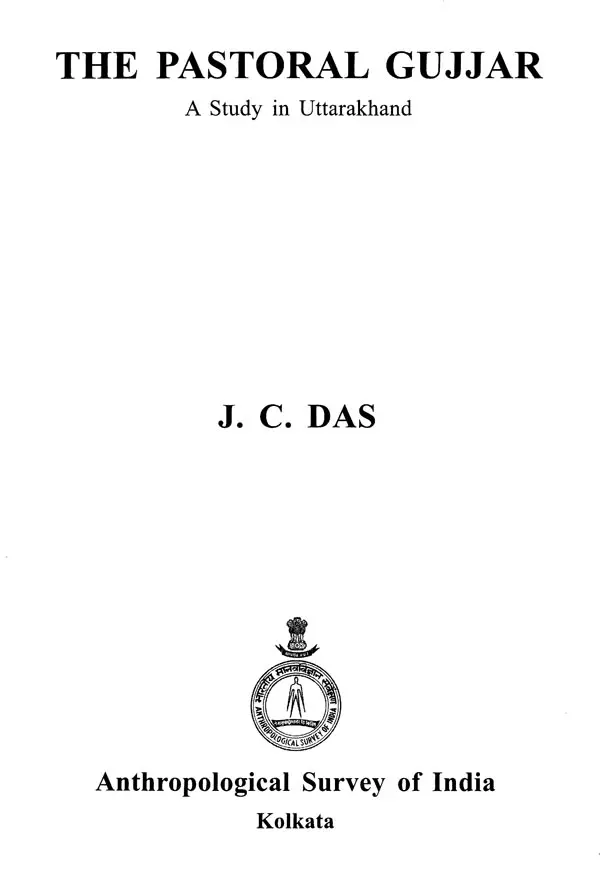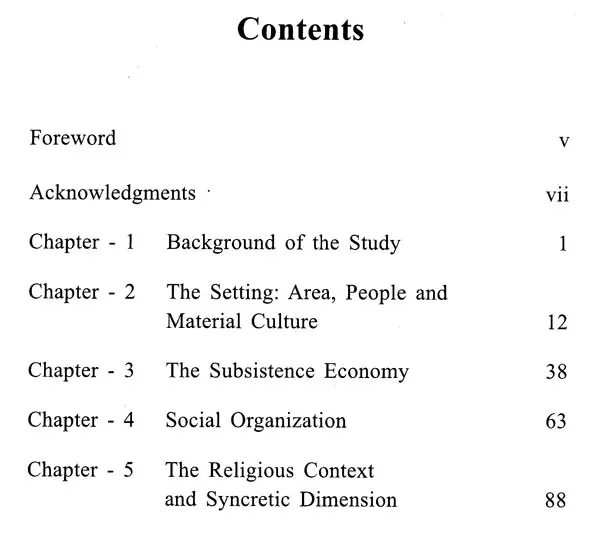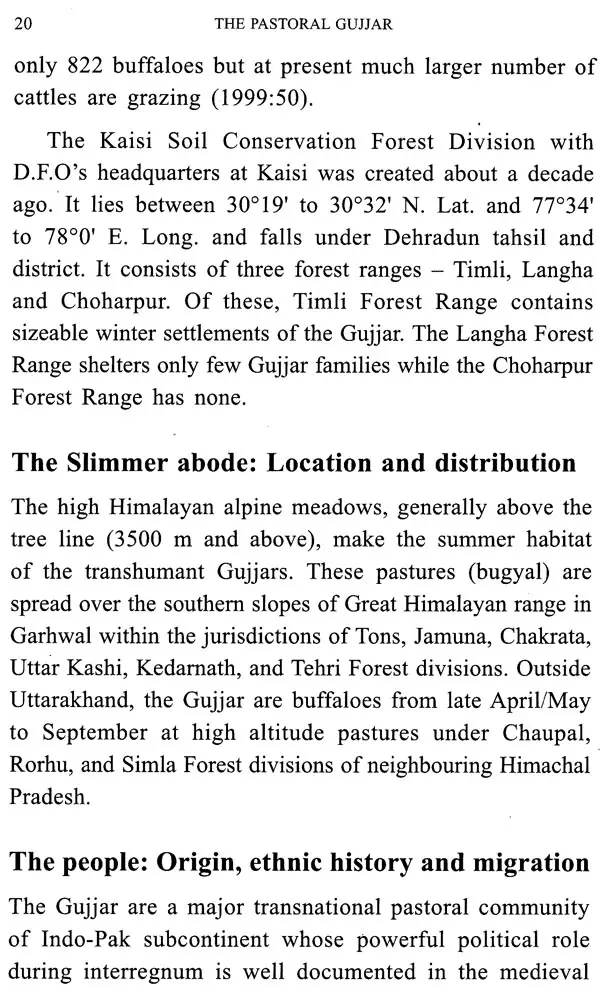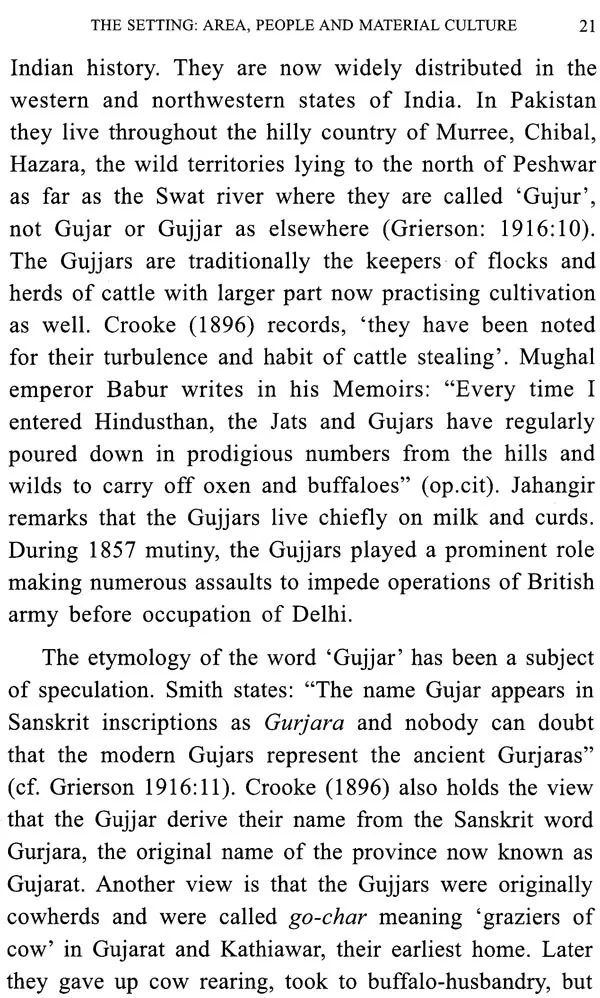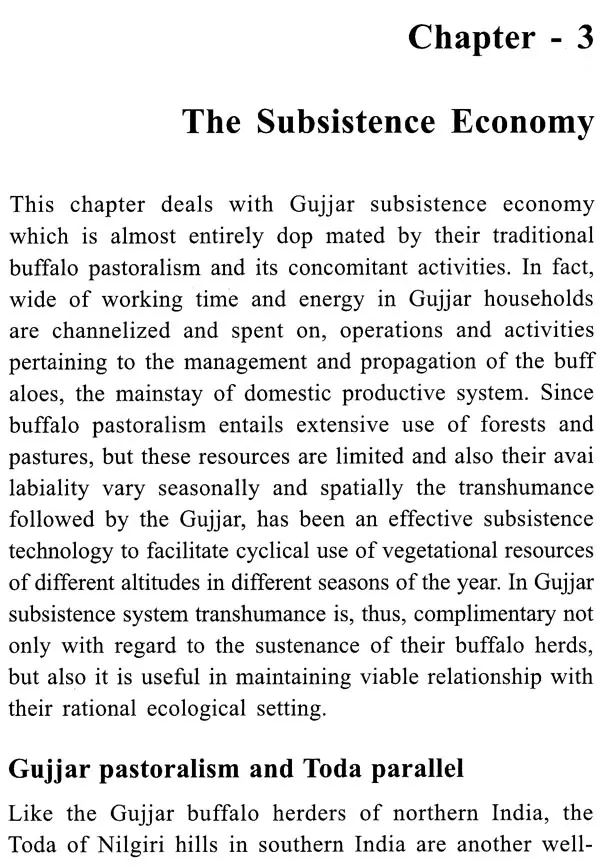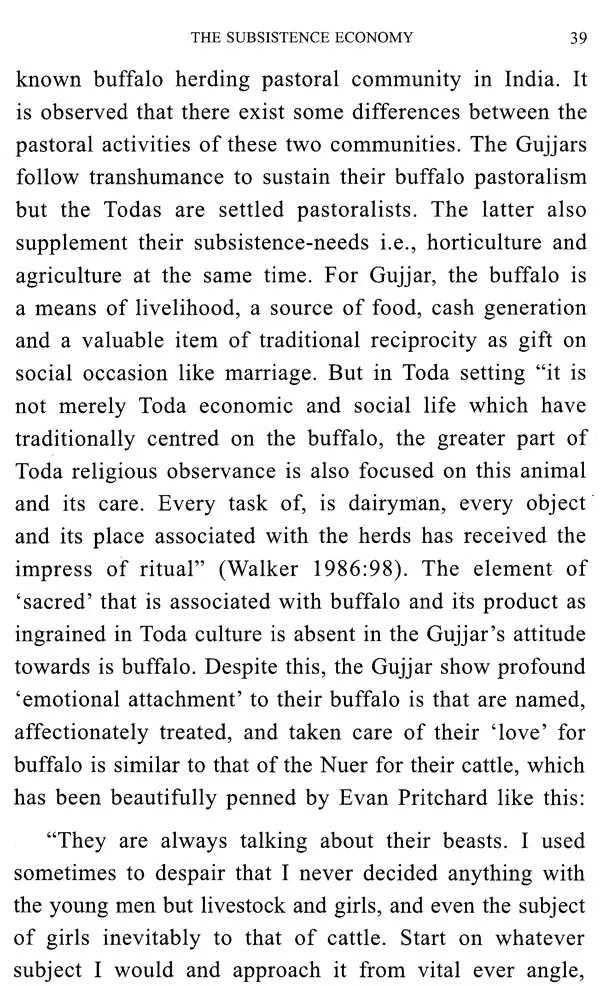
The Pastoral Gujjar - A Study in Uttarakhand
Book Specification
| Item Code: | UBF236 |
| Author: | J. C. Das |
| Publisher: | Anthropological Survey of India, Kolkata |
| Language: | English |
| Edition: | 2013 |
| ISBN: | 9789382984054 |
| Pages: | 114 |
| Cover: | HARDCOVER |
| Other Details | 8.50 X 5.50 inch |
| Weight | 270 gm |
Book Description
Anthropologists are not only interested in the study of pastoralism and transhumance as a strategy of livelihood, but as a culture in itself. Further, unlike other systems of livelihood, pastoralism is under severe pressure from both within and outside towards rapid and irrevocable change. This necessitates concrete and reliable documentation at this stage by anthropologists. Perhaps the foremost reason for change is increasing fragmentation of the natural system on which pastoralists depend into spatial isolation. This is largely due to changes in land tenure, agriculture, sedentarization, and resultant changes in the institutions. Second is the climate change and climate variability which alter dry and semi-arid grasslands, putting an end to animal husbandry in particular and the culture of pastoralism in general.
In India, most of the studies on pastoral communities are on transhumants, found to be engaged in sheep and goat rearing in the Himalayan region. The present volume is slightly different from the earlier ones on the subject. This volume on the pastoral Gujjars of Uttarakhand is about how the Gujjars have shifted to buffalo herding leaving aside their traditional practices.
The volume is an outcome of an intensive research undertaken as a part of the regional project of Anthropological Survey of India on "Ethnography in the Central and Western Himalayas : Structure and Change", launched by the North West Regional Centre of the Survey at Dehradun.
Introduction: Pastoral communities in India
Ethnographic studies of nomadic and pastoral people, whose traditional life style manifests unique relationship with their archaic mode of production, arouse enormous anthropological interest from both theoretical and substantive points of view. The characteristic life ways of these people remind some early stages in the history of human social and cultural progress. These societies, have long been serving anthropology as prototypes of 'traditional', since by virtue of their distant habitats and apparent resistance to change, they seemed to maintain social practices lost to groups occupying the geographical and political mainstreams of Third World Nations. Due to their periodic and regularized spatial movement and their specialized economies, they were attributed a high degree of social autonomy. These characteristics made them ideal subjects for social science of small scale, pre-industrial, non-western societies, the avenue of development of anthropology in its own traditional form (1981:4). As a type of ethno-economics, pastoralism is basically a subsistence system having implications on the social and cultural edifices of the community who live by it as a cultural system. Understanding of the operation of subsistence economics and the social and cultural dynamics of small scale societies has partly advanced through a few studies of pastoral communities (Evans Pritchard 1940, Barth 1961, Rivers 1906), for long, the anthropologists have also noted the apparent 'pastoral conservatism.....' or their imperviousness to forces called modernization (Gulliver 1969, Schneider 1959). The scenario, however, is becoming different.
**Contents and Sample Pages**
